Anti-junta groups launch civil disobedience in Sudan after massacre
Pro-democracy groups have begun two days of strikes and civil disobedience in Sudan after at least seven civilians were killed and hundreds injured in clashes during anti-coup demonstrations in the Northeast African country.
Protesters erected barricades across roads in the capital, Khartoum, and some shops and offices were shut as a two-day general strike and civil disobedience campaign began on Tuesday.
Stone and brick barricades impeded access to some major roads in the eastern and southern parts of the capital and the adjoining cities of Bahri and Omdurman.
Groups representing doctors, teachers, engineers, and pilots announced support for the strike aiming to pressure authorities by bringing life to a standstill.
Sudan's University for Science and Technology also suspended all activities as part of the civil disobedience.
Police fired tear gas at dozens of protesters setting up roadblocks on the streets of east Khartoum.
Political parties and the Khartoum State resistance committees called the strike in a joint statement after at least seven protesters were shot dead by Sudan's security forces at anti-junta rallies in Khartoum and the city of Wad Madani on Monday.
"It is our duty to resist them until we are victorious or they rule an empty country after they have killed us all," the statement said.
More than two years ago, massive anti-government demonstrations hit Sudan, mostly over the economy. The protesters, youths for the large part, demanded the resignation of the then-President Omar al-Bashir.
Bashir was ultimately deposed through a military coup in April 2019, after ruling over the country for three decades. In August the same year, a transitional civilian-military administration was founded to run the country.
However, Sudan's military chief and de facto leader Abdel Fattah al-Burhan staged a coup on October 25 last year and dissolved the fragile government.
Abdalla Hamdok, the then-prime minister, was detained and put under house arrest in a move that infuriated the Sudanese and sparked an international outcry, including from the UN Security Council. Other civilian leaders were also held in military detention.
Hamdok was later released and signed a power-sharing deal with the Burhan-led junta, according to which the former would continue his career as prime minister, all political prisoners detained during the coup would be released, and a 2019 constitutional declaration would be the basis for a political transition. And July 2023 was set as the date for Sudan's first free elections since 1986.
On January 2, Hamdok resigned, leaving the military fully in charge. He said Sudan was at a "dangerous crossroads threatening its very survival."
More than 70 people have been killed and more than 2,000 injured during the crackdown on the anti-coup protests since the October coup, medics say.
The African country, home to 45 million people, is also dealing with a severe economic crisis and an inflation reaching 400 percent.
'Gaza has won': Social media users react to ceasefire with mix of relief, joy
Iran seeks South Korea’s assistance for AI, fiber-optic projects
VIDEO | Iran's 'Eqtedar' (Power) maneuver
Israel hits HTS military target in Syria for 1st time since fall of Assad
VIDEO | Press TV's news headlines
Israel has slaughtered 13,000 students in Gaza, West Bank
VIDEO | More Zionist than Zionists: Biden’s legacy to be defined by Gaza genocide
Hamas confirms handing approval of Gaza ceasefire deal to mediators


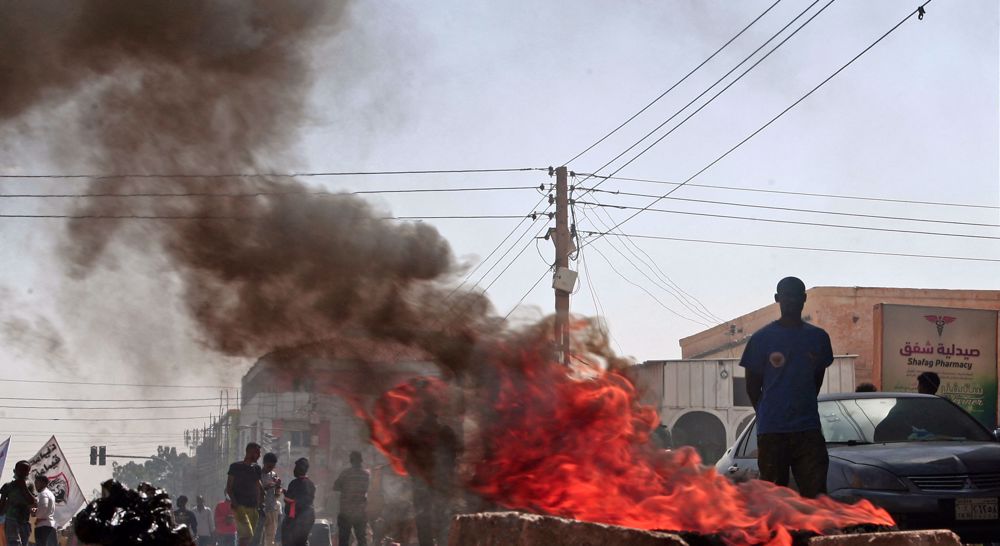
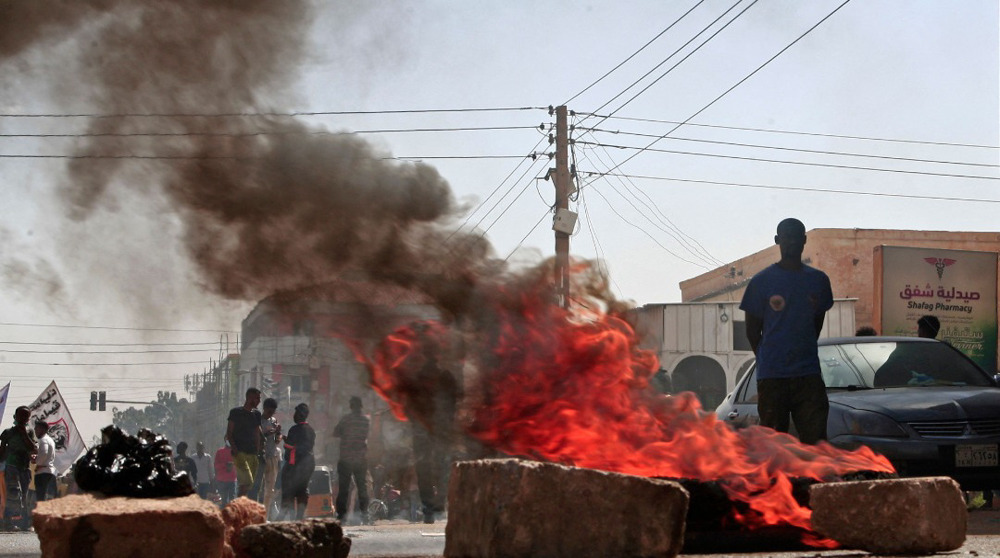
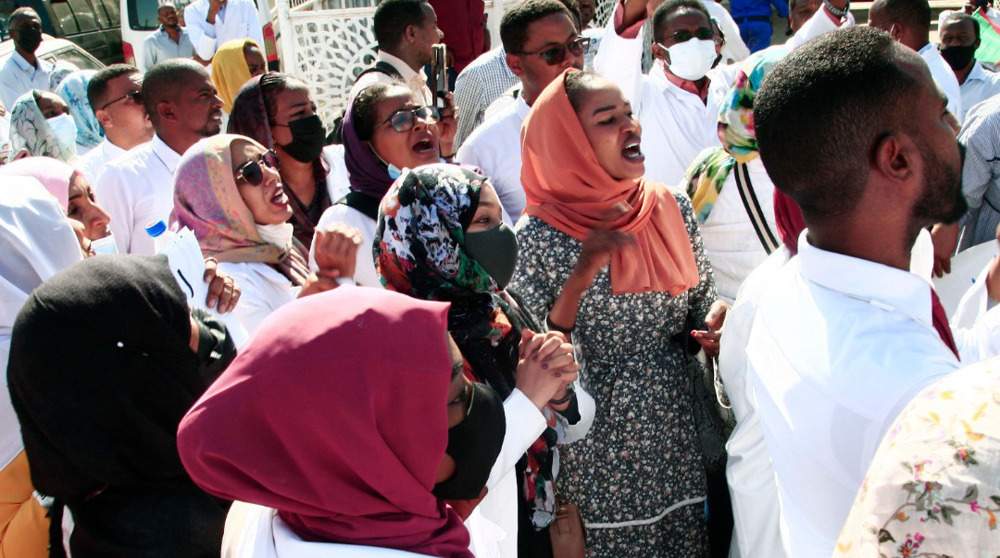
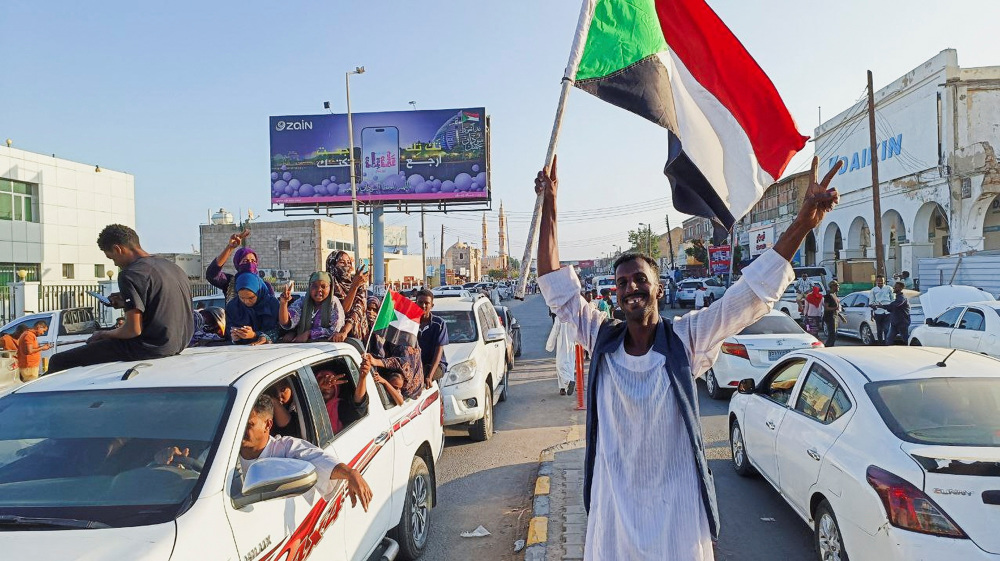
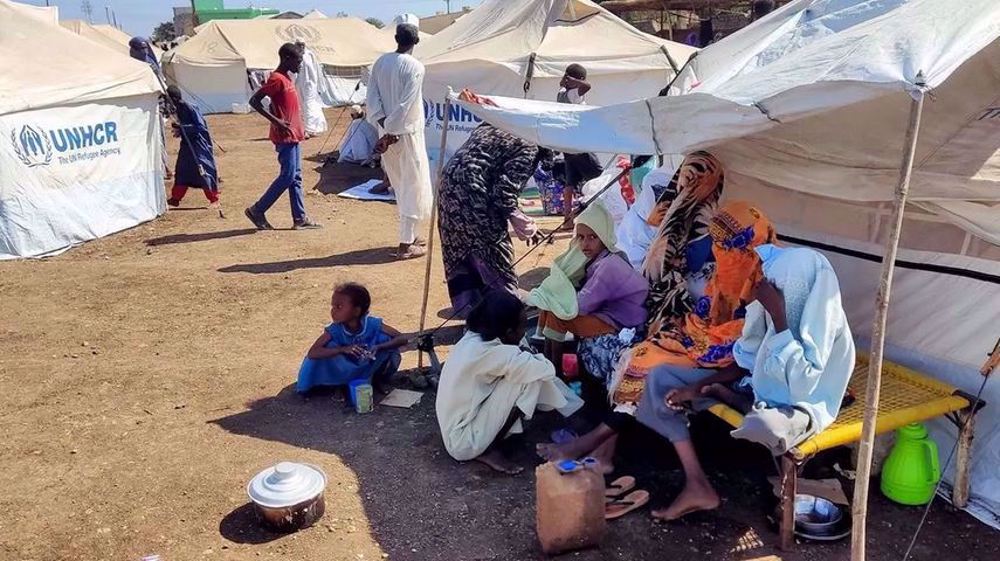
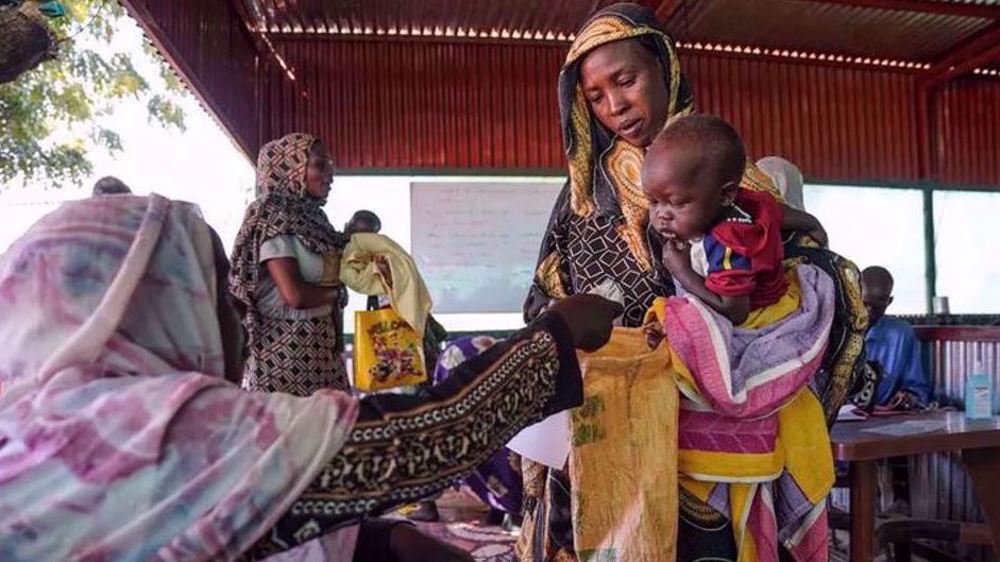



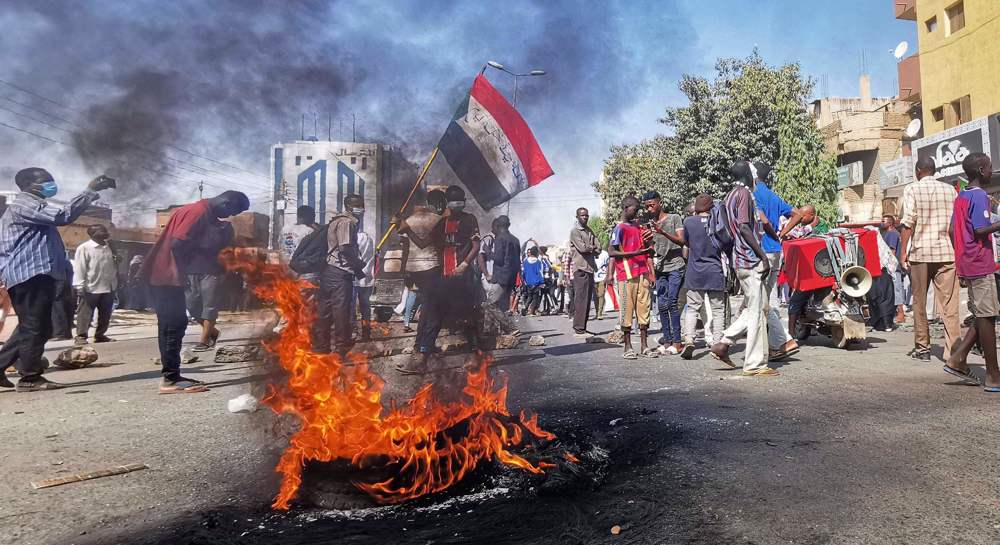
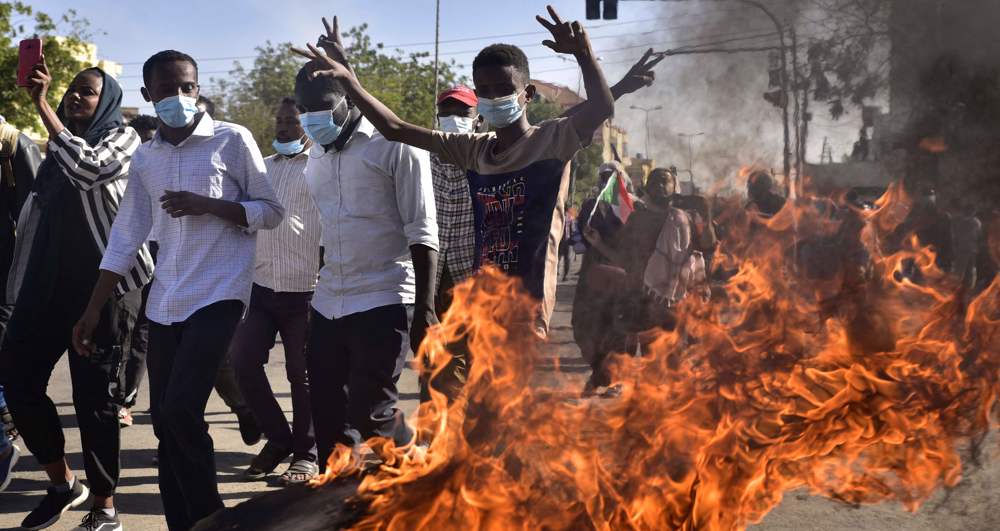
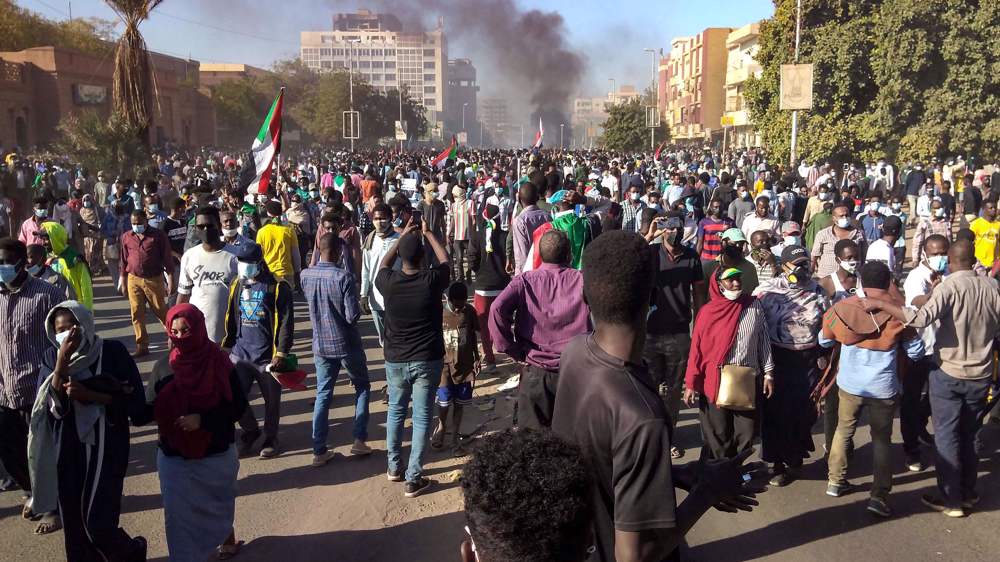
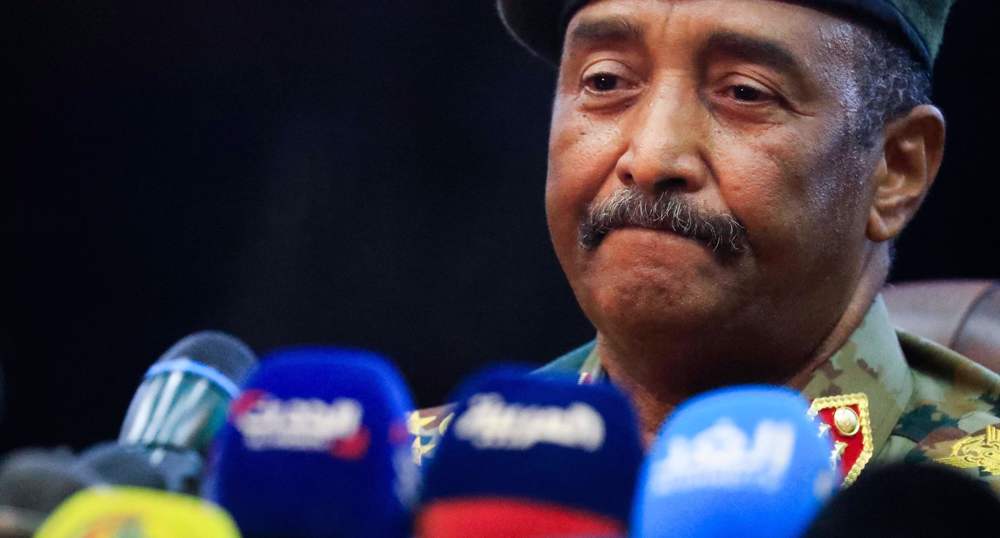
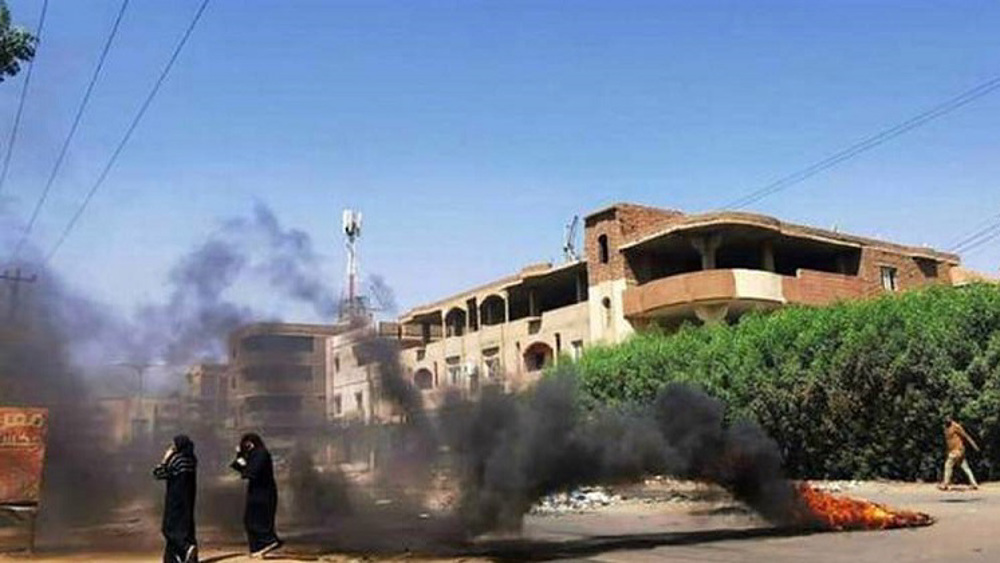
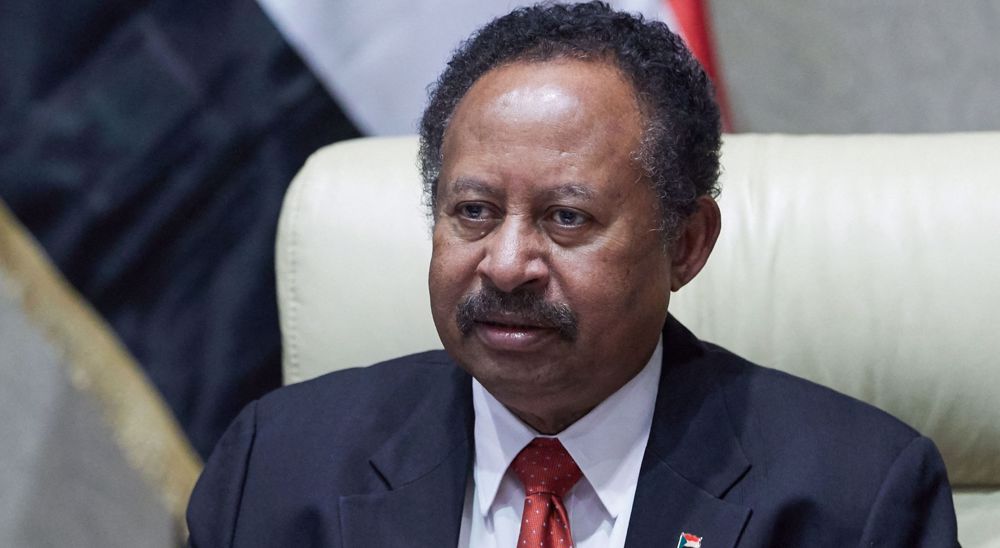
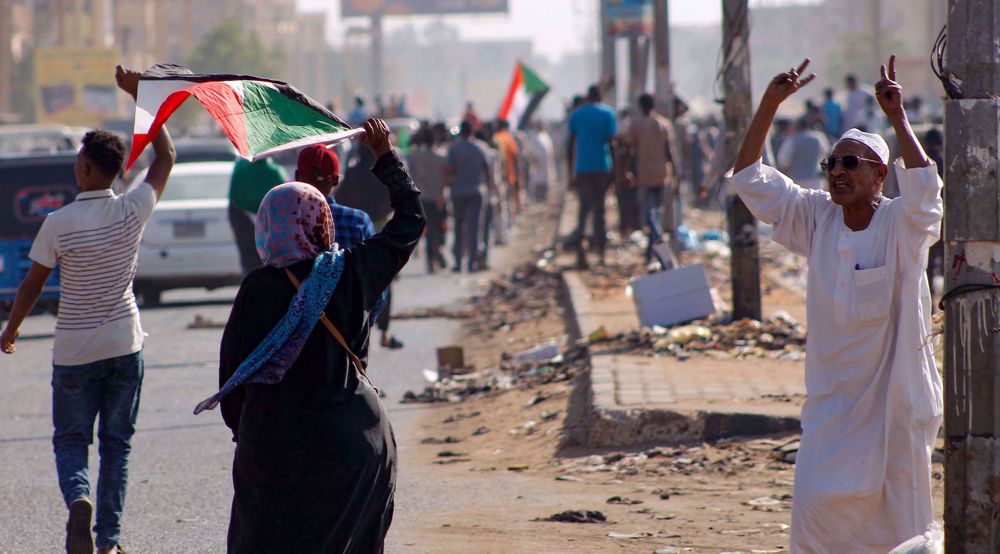

 This makes it easy to access the Press TV website
This makes it easy to access the Press TV website